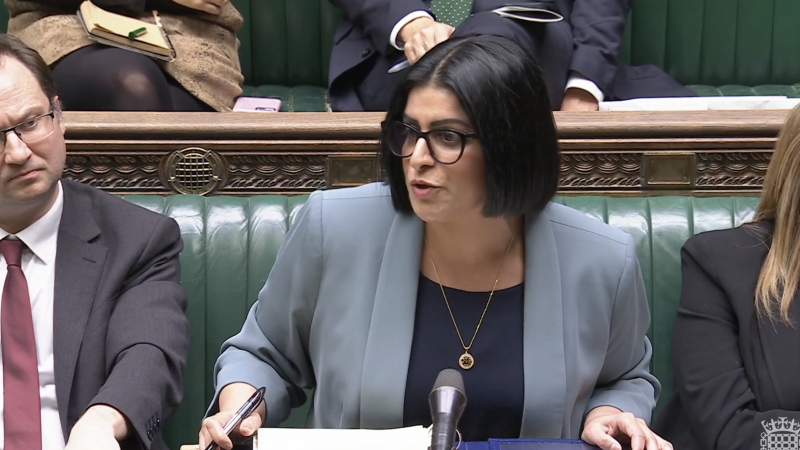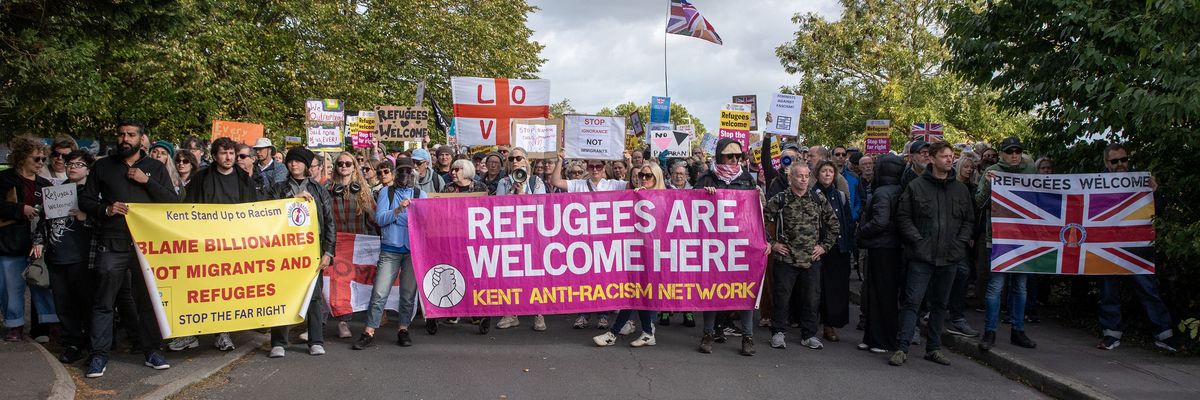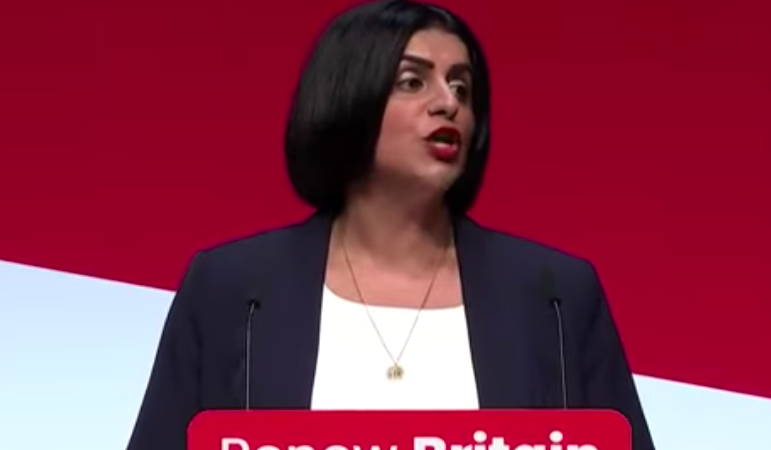Next year will mark 250 years since the “official” date assigned to the rebellion against British sovereignty in its North American colony, popularly known as the “American Revolution.” In early July of 1776, a number of prominent figures and leaders of colonial resistance to the authority of the English Crown met in the port city of one of the English colonies and signed a resolution and an audacious document declaring independence. The impressively crafted and innovative document drew an administrative and military response from English authorities in both London and the colonies and forced the colonies to plan their next defiant move. If Philadelphia was the cradle of the revolution, the Declaration of Independence was its founding document.
As with past celebrations of the revolution, there will be reenactments, speeches, and other self-congratulatory virtue-signaling. Politicians will compete to ascribe their own views to the founding principles. Every opportunity will be taken to commercialize the event from Ken Burns’ calculated-to-be-unchallenging televised take (already underway!) on the colonial uprising to meaningless flyovers of outdoor events and endless volleys of fireworks.
Anniversaries, like next year’s, understandably bring out a reconsideration, a reevaluation, and a renewed search for the meaning of the widely regarded event. And given the fractures in US politics, the conclusions will be contested between diverse perspectives and hostile ideologies. For many, if not most, the US is at a crossroads and understanding its past is likely a crucial determinant of the way forward.
One must begin with the account of the revolution foisted on young minds in the mandatory American History classes of the US public high schools. While these courses may stop short of the extreme fabulism of Founding Father sainthood, they reproduce the mythology of the liberation of a “discovered” land marching through history as a virtuous exception to the greed and malice of the old world and a benevolent friend to those seeking to escape oppression and backwardness. Unfortunately, these classes too often stamp an indelible, lingering impression on those who suffer this miseducation.
The venerated writers, Charles and Mary Beard, in their now-neglected 1927 classic, The Rise of American Civilization, sharply dismiss the crudest contending myths:
The oldest hypothesis, born of the conflict on American soil, is the consecrated story of school textbooks: the Revolution was an indignant uprising of a virtuous people, who loved orderly and progressive government, against the cruel, unnatural, and unconstitutional acts of King George III. From this same conflict arose, on the other side, the Tory interpretation: the War for Independence was a violent outcome of lawless efforts on the part of bucolic clowns, led by briefless pettifoggers and smuggling merchants, to evade wise and moderate laws broadly conceived in the interest of the English-speaking empire. Such were the authentic canons of early creeds.
With the flow of time appeared some doubts about the finality of both these verdicts.
The Beards, like many others, especially those in the Marxist tradition, understood the role of both class and economic interests in the unfolding of the revolution. Their work joins with the account of the equally underappreciated Marxist scholar, Herbert Morais, in stressing the importance of English mercantilism in generating the contradiction between England and its colonies. In The Struggle for American Freedom (1944), Morais recognizes the tension between merchants and manufacturers in England and the New World, especially in New England:
While the southern provinces could be made to fit into the English mercantile system, the New England colonies could not. The simple reason for this was that they produced practically nothing which the mother country wanted. Their farm products — wheat, rye, barley, and oats — were like those in England. Their fisheries served only to draw away profits from English fishermen and to hamper the growth of the English fishing fleet. The rapidly developing industries of New England acted as a direct threat to the prosperity of English manufacturers who considered the colonies an outlet for their goods. New England shipping drained off English seamen and competed with English traders for the commerce of the West Indies, the Wine Islands, and the Mediterranean.
While the southern colonies did indeed enjoy strong trade with the “motherland” — tobacco, indigo, rice — their perpetual debt to English financiers gave reason to coalesce with Northern resistance.
For Morais, this contradiction — especially in the shadow of England’s Glorious Revolution of 1688 — soured “imperial-colonial relations”:
English control over America was extended by converting proprietary and corporate colonies into royal provinces, a move which was obviously dictated by the mercantilistic interests of the English ruling classes. In all of the royal colonies dual power existed: the governor representing the external authority and the colonial assembly the internal. Throughout the provincial period (1689-1763), these two forces struggled for supremacy, the fundamental issue at stake being: Who was to rule over America?
Is Morais likening the period of dual power in the colonies to the dual power between the Soviets and the Duma before the 1917 October Revolution in Russia? Is he suggesting that economic friction between two class hierarchies — one in England, one over three thousand miles away — led to an unsustainable dual power, resolved by revolution?
For Morais, the colonial agency for this struggle for power came from two class bases: the aggrieved “merchant and planter classes” and the working classes — farmers, mechanics, artisans, and day laborers. These classes united under the banner of revolution, but pursued two distinct struggles: “…the struggle for self-government and national independence and the struggle among the American people themselves for a more democratic order.”
Herbert Aptheker, a Marxist historian and admirer of Morais, writing in The American Revolution 1763-1783 (1960) accepted Morais’ two struggles, and added a third current:
The American Revolution was the result of the interpenetration of three currents: the fundamental conflict of interest between the rulers of the colonizing power and the vast majority of the colonists [Morais’ struggle for national independence]; the class stratification within the colonies themselves and the resulting class struggles that marked colonial history which almost always found the British imperial power as a bulwark of the reactionary or the conservative interests in such struggles [Morais’ struggle for a more democratic order]; and the developing sense of American nationality, transcending class lines, which resulted from the varied origins of the colonies’ peoples, their physical separation from England, the different fauna and flora and climate of their surroundings, their different problems and interests, their own developing culture and psychology and even language, their common history, and from their own experience of common hostility — varying in degree and place and time — towards the powers-that-be in England.
Aptheker’s third current assumes a more fully developed “American” identity than evidence permits. Many historians note that inhabitants of the colonies maintained a closer identification with their specific colony — Massachusetts, Virginia, etc. — than with the entire largely English-speaking North American project. Moreover, nearly all concede that the population was divided deeply between Patriots, neutrals, and Tories (Richard Bell calculates that roughly 40% of colonists were Patriots, 40% were indifferent, and 20% Tories, in his excellent The American Revolution and the Fate of the World [2025]). With these divisions, the revolutionary era was hardly fertile soil for a widely accepted national identity.
In fact, Aptheker may be confusing cause with effect; the revolution created a national identity, rather than being the cause of it.
Aptheker reminds us that V.I. Lenin, in his Letter to American Workers (1918) famously wrote that:
The history of modern, civilised America opened with one of those great, really liberating, really revolutionary wars of which there have been so few compared to the vast number of wars of conquest which, like the present imperialist war, were caused by squabbles among kings, landowners or capitalists over the division of usurped lands or ill-gotten gains. That was the war the American people waged against the British robbers who oppressed America and held her in colonial slavery, in the same way as these “civilised” bloodsuckers are still oppressing and holding in colonial slavery hundreds of millions of people in India, Egypt, and all parts of the world. [my emphasis]
The highlighted area is often cited without reference to Lenin’s comparison with the mindless, bloody clashes of empires, fought not over any liberatory cause, but from personal or ruling-class interest. It is sometimes overlooked that Lenin goes on to laud with equal or greater enthusiasm “…the immense, world-historic, progressive and revolutionary significance of the American Civil War of 1863-65!”. It reminds us that Lenin always ascribes “revolutionary significance” in the context of time and place. The “greatness” of the American Revolution draws its greatness from the context of an original, successful, and unlikely national liberation. Yes, it is a national liberation tarnished by the original sin of aboriginal displacement and genocide and stained by the national embrace of chattel slavery.
For some, the “greatness” of the American Revolution is a challenging reach. Marxist Eric Hobsbawm, comparing the US colonial revolution with the French Revolution, observes in his Echoes of the Marseillaise (1990):
Indeed, the comparatively modest international influence of the American Revolution itself — must strike the observer. As a model for changing social and political systems it was absorbed, as it were, and replaced by the French Revolution, partly because reformers or revolutionaries in European societies could recognize themselves more readily in the ancien régime of France than in the free colonists and slave-holders of North America. Also, the French Revolution saw itself, far more than the American had, as a global phenomenon, the model and pioneer of the world’s destiny.
Some might point to Hobsbawm’s reference to “reformers or revolutionaries in European societies” as reflecting a narrow Eurocentric view of the impact of the US revolution, noting that a vastly influential Asian revolutionary like Ho Chi Minh cited the Declaration of Independence as enormously influential to the Vietnamese struggle for independence. Moreover, Richard Bell’s recent book — cited above — argues persuasively that the revolution’s reach was global and profound:
…winning independence required a world war in all but in name. What began as a domestic dispute over taxes, trading rights, and home rule soon metastasized into something much bigger and broader, pulling in enslaved people as well as Native people and French and Spanish speakers living along the length of the Mississippi River. And it kept expanding outward, reverberating across every habitable continent and spreading tumult, uncertainty, and opportunity in all directions.
Marxist William Z. Foster would largely agree, though he would place the US revolution in the context of a long period of “hemispheric revolution,” stretching for about sixty years: “The several national political upheavals constituted one general hemispheric revolution. Taken together, they were by far the broadest revolutionary movement the world had known up to that period.”
For Foster, in his Outline Political History of the Americas (1951), “The heart of this great movement was a revolutionary attack against the feudal system. It was the broad all-American bourgeois, i.e., capitalist, revolution.”
The broad hemispheric revolution may be made to fit revolutions against feudal relations to some extent, if we view Spanish and Portuguese domination as imposing the mother countries’ feudal system on their colonies. But surely England was not imposing feudalism on its colonies, since both the 1640 revolution and the so-called “glorious” revolution of 1688 had liberated England from nearly all but the ceremonial grip of feudal absolutism. And the quasi-feudal slavocracy of the Southern states was left largely untouched by the rebellion against England.
Perhaps Foster meant to take the US revolution as a rebellion against the vestiges of feudalism — the imperious reign of the monarch, George III — existing in a country well on its way toward bourgeois domination. Or maybe Foster saw the frequent royal granting of vast tracts of land to favored absentees or expatriates as an expression of feudal grants, though they did not result in classic feudal manorial relations.
Leftist historian, Greg Grandin, would agree that the rebellion in the North American colonies had an impact far beyond that sliver of coastline: “And so Spain joined France [in supporting the colonial cause] escalating a provincial rebellion into an imperial world war: Charles and Louis against George.” In his ambitious and insightful America, América: A New History of the New World, Grandin shows that the “hemispherical revolutions” while sharing much, also differed radically in their fundamental assumptions. In the English-speaking North, there was a privileged sense of destiny, of self-righteousness, while the Southern rebellion sought dignity and independence. Grandin expressed the difference through the voices of leading intellectuals:
Compare… Venezuela’s independence manifesto… to [the] Declaration of Independence. History barely gets a tug from Jefferson. All is nature, freed from the burden of society. All the New World’s evils are placed at the feet of King George. The original settlers and their heirs who claimed the land and drove off its original inhabitants did no wrong. They only suffered wrongs. For John Adams, North America was “not a conquered, but discovered country.”
In contrast, [for Jefferson’s Venezuelan counterparts], the New World wasn’t discovered, but “conquered.” They knew that America was a stolen continent. The Conquest hovers over their independence manifesto, an event so vile it set the course for centuries of human events.
How these differences play out over a century of conflict, mistrust, and intervention between North and South is the subject of Grandin’s 2025 book, where he recounts their different trajectories — framed by discovery or conquest — and how those differing ideas shaped the world.
We gain much in understanding the historical limitations of the US rebellion by comparing its foundations with that of the other national liberation movements in the Americas.
Important Left historian, Gerald Horne, casts further shade over the eighteenth-century uprising by declaring it not a revolution, but a counter-revolution against the anticipated outlawing of slavery in England. Horne’s provocative thesis in The Counter-Revolution of 1776: Slave Resistance and the Origins of the United States of America (2014) argues that the avowed high-minded principles of the revolution’s elites were overshadowed by the interests of the slaveholding planters (the majority of the Declaration’s signers were slave-owners). While indisputable evidence of the so-called Founding Fathers’ ultimate motivation would be hard to come by, their material interests are certainly relevant. By reminding us of those slaveholding interests, Horne is rendering a service, just as Charles Beard did with his An Economic Interpretation of the Constitution (1913), by serving as a reminder of the racial and class interests of the revolution’s leaders and the Constitution’s authors. Yet both limit the meaning of the revolution and the Constitution to those narrow interests and deny the role of the broader masses on determining the revolution’s fate and impact.
Arguably the most well-known left account of the revolution is found in Howard Zinn’s widely influential A People’s History of the United States (1980). Zinn — an active participant in the post-Red Scare US New Left — takes a radically different tactic from Horne and others influenced by Marx. For Zinn, elites were constantly seeking to tame, to restrain, to channel the direction of energized masses away from revolution, away from decisive action. Drawing from the history-from-below school of historical studies and adhering to the 1960s student-left ideology of radical democracy, he stresses the spontaneity and self-motivation of common folk. One might say that his analysis of 1776 foretells the Occupy movement of our time:
Mechanics were demanding political democracy in the colonial cities: open meetings of representative assemblies, public galleries in the legislative halls, and the publishing of roll-call votes, so that the constituents could check on representatives. They wanted open-air meetings where the population could participate in making policy, more equitable taxes, price controls, and the election of mechanics and other ordinary people to government posts.
Rebellion is natural and instinctive for Zinn, as he experienced it with 1960s youth. The danger is perceived as conservative elements, elites, authoritarians, fear-mongers, or others obstructing the wave of spontaneous social change. It is an appealing, though romantic view, and one that continues to seduce many who obstinately resist the necessity of planning and organization in social change.
For each interpretation of the US revolution discussed here and many others unmentioned, there are sets of particular circumstances — like those of Zinn — that shaped that interpretation to a greater or lesser extent. Each writer wrote at a time and place that shaped how they would think about the revolution.
Charles and Mary Beard’s thinking was undoubtedly influenced by their knowledge of populist risings of the late nineteenth century that brought class questions to the fore. They looked at the revolution through that lens.
Hobsbawm’s negative view of the significance of the US revolution came at a time of the collapse of socialism in Eastern Europe that surely added to his growing skepticism about revolutionary change. Only the iconic French Revolution remained of historic significance to him.
Aptheker, writing with the popular front to his back and facing a hell of McCarthyite red-baiting and repression, understandably stressed the political innovations of the US revolution, especially its rejection of official oppression and its call for liberty.
For Grandin, his long engagement supporting solidarity movements with Central and South America unsurprisingly influenced his circumspection regarding the US revolution.
And Horne’s reinterpretation came amidst growing frustration with officially tolerated, if not encouraged, violence and murder of Black people. Its coincidence with the Black Lives Matter movement gave it greater relevance. And undoubtedly, it gave inspiration to the New York Times 1619 Project, which commanded attention in the struggle against racism.
Whether we like it or not, next year’s orgy of celebration will conjure a myriad of interpretations of the “American Revolution” with a myriad of claims about their significance for today. The entire political spectrum will offer lessons of the revolution for those seeking an exit from the profound crises of this moment. In reality, much can be learned from a study of the period, making participation in the discussion worthwhile and necessary.
In that regard, consider the observations of the then-Soviet scholar, Vladimir Sogrin. In Founding Fathers of the United States (1988), he wrote:
The historical situation, the unique natural conditions and geographical position were propitious for the development of the progressive social system in the United States. It emerged as a bourgeois state, bypassing all the preceding socio-historical formations, so that American capitalism did not have to destroy feudal foundations, a process which took other countries scores and even hundreds of years to complete. This enabled the bourgeois socio-economic system to advance with seven-league strides, and speeded up the establishment in the country of republican and other progressive principles inscribed on the banner of the Enlightenment…
Acknowledgement of the progressive nature of the transformations effected by the American Revolution and the American Republic gives no grounds for their idealization. American liberal historians’ attempts to prove that an “empire of reason”, which the European enlighteners dreamed about, was established in North America under the impact of the revolution is to me an example of an apologetic interpretation. The ideals of the Enlightenment were by far not realized, like, for instance, its fundamental principle of equal legal and political rights for all, as it did not embrace the blacks, Indians, women and indigent white men…
The US War of Independence ushered in, rather than completed, the era of bourgeois revolutions in North America.
We should ponder whether today — nearly two hundred and fifty years later — the US is ripe for another revolution, a revolution that would take us well beyond the revolution conjured by the fifty-six lawyers, merchants, planters, and elites who gave us the original Declaration. May the next one be for independence from capitalism.





